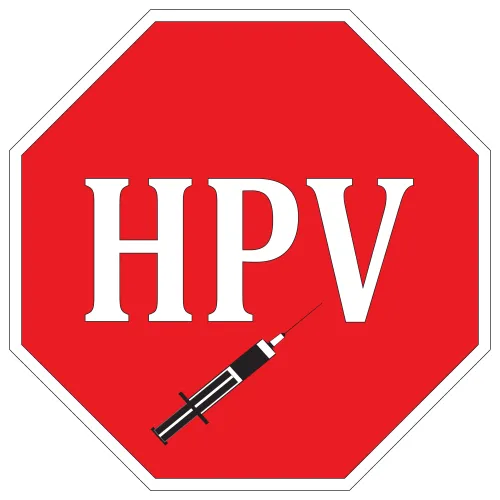Internal Medicine Coding Alert
Thorough Understanding of G0445 Ensures HIBC Reporting Success

Hint: Don’t forget to report appropriate diagnosis codes to support medical necessity.
When your Internal medicine specialist performs behavioral counseling to prevent sexually transmitted infections, you will need to know what code to report for this service in addition to being aware of high risk criteria, along with provider and POS requirements. Also, you have to know whether or not this service can be combined with other preventive or E/M services.
Background:The Centers for Medicare & Medicaid Services (CMS) covers high intensity behavior counseling (HIBC) to prevent sexually transmitted infections (STIs) for all sexually active adolescents and for adults at increased risk for STIs, if referred for this service by a primary care provider and provided by a Medicare-eligible primary care provider in a primary care setting.
You report this counseling provided by your Internal medicine physician using the HCPCS code, G0445(High-intensity behavioral counseling to prevent sexually transmitted infection; face-to-face, individual, includes: education, skills training, and guidance on how to change sexual behavior, performed semi-annually, 30 minutes). CMS will cover up to two individual, 20- to 30-minute, face-to-face counseling sessions annually for Medicare beneficiaries for HIBC to prevent STIs
HIBC is defined as a program intended to promote sexual risk reduction or risk avoidance which includes each of these broad topics, allowing flexibility for appropriate patient-focused elements: education, skills training, and guidance on how to change sexual behavior.
Know the ‘High Risk’ Criteria
When reporting counseling with G0445, you will need to be aware of which individuals are under the “high risk” category for STIs. The high/increased risk individual sexual behaviors, based on United States Preventive Services Task Force guidelines, include any of the following:
In addition to individual risk factors, physicians should consider community social factors, such as high prevalence of STIs in the community populations, when determining whether a patient is at high/increased risk for STIs and when recommending HIBC.
Provider and POS requirements: Make sure that the documentation that you provide reflects information that a qualified provider performs the screening. The screening and the counseling should be performed by the beneficiary’s primary care physician (which CMS defines as general practice, family practice, internal medicine, obstetrics/gynecology, pediatric medicine, or geriatric medicine) or by the beneficiary’s physician assistant, nurse practitioner, certified nurse midwife, or certified clinical nurse specialist.
Also, note that CMS limits coverage and payment to certain sites of service. CMS only pays for the HIBC if it is performed in one of the following places of service:
Report Proper Diagnosis Codes to Support Medical Necessity
When your Internal medicine specialist performs HIBC for a patient, you will have to report the appropriate ICD-9 (or ICD-10 codes, when it becomes effective) codes in addition to G0445 to support the necessity of performing the counseling for the patient.
When your clinician performs high intensity behavioral counseling for STIs, you will have to report the ICD-9 code, V69.8 (Other problems related to life style) to show that the patient is at a high risk for sexually transmitted infections. This ICD-9 code crosswalks to Z72.89 (Other problems related to lifestyle) in ICD-10.
If your clinician is concomitantly performing a screening for chlamydia and gonorrhea or other sexually transmitted infections, you have to report V73.89 (Special screening examination for viral and chlamydial diseases; other specified viral diseases) or V74.5 (Special screening examination for bacterial and spirochetal diseases; venereal disease) (depending on the infection being screened) under ICD-9 and codes such as Z11.3 (Encounter for screening for infections with a predominantly sexual mode of transmission), Z11.59 (Encounter for screening for other viral diseases), or Z11.8 (Encounter for screening for other infectious and parasitic diseases) (which includes an encounter for screening for chlamydia) under ICD-10, again depending on what is being screened.
Remember if G0445 Fits With Same Day Preventive or E/M Services
If your clinician provides behavioral counseling for STIs on the same day when he performs a Medicare annual wellness visit, you can report both the services together. The same holds true if your Physician is performing HIBC with a problem-oriented visit. So, you can report G0445 with same day Medicare annual wellness visit codes or an E/M code.
However, when billing G0445 with an E/M code, you will have to remember that the E/M service should be supported by a distinct diagnosis code that reflects the medical necessity of performing the E/M service. You cannot use the E/M code with the same diagnosis code that you will use to support the medical necessity of performing the HIBC. In other words, you cannot use V69.8 or any other diagnosis code that you are associating with your internist performing the HIBC with the E/M code that you are reporting for the same visit. Also, you should not resort to using an E/M code for every patient for whom your clinician is performing the HIBC. An E/M code should only be reported when there is a significant and separately identifiable problem that your clinician addressed during the same visit when he performed the HIBC.
“In addition to appending a distinct diagnosis code to the E/M service, you should append an appropriate modifier, such as 59 (Distinct Procedural Service) to G0445,” states a coding expert. “Correct Coding Initiative (CCI) edits bundle G0445 with E/M codes if both services are provided to the same patient on the same date. However, the CCI edits do permit separate reporting and payment of G0445 if an appropriate modifier is appended to it, since it is the Column 2 code in the edit pairs,” he adds.
Note: Even though G0445 can be reported with annual wellness visit codes or E/M codes, CMS says that “only one G0445 may be paid on any one date of service.”
Other Payers May Require Different Reporting
Because CMS created G0445 for Medicare payment purposes, other payers may not cover it in the same manner as CMS. “For instance, some payers may want you to report HIBC as a preventive counseling service using one of the Current Procedural Terminology®(CPT®) codes in the range 99401-99404,” the coding expert points out. The appropriate code will depend on the length of time spent with the patient.
Per the CPT® guidelines, these codes are used to report services provided face-to-face by a physician or other qualified health care professional for the purpose of promoting health and preventing illness or injury. They are distinct from E/M services, which may be reported separately when performed. As noted in CPT®, preventive medicine counseling and risk factor reduction interventions will vary with age and can address such issues as sexual practices.
Because not all payers may recognize G0445, you are advised to check with non-Medicare payers before reporting to the code to them.
Related Articles
Internal Medicine Coding Alert
- Behavioral Counseling:
Thorough Understanding of G0445 Ensures HIBC Reporting Success
Hint: Don’t forget to report appropriate diagnosis codes to support medical necessity. When your Internal [...] - Payer Pointers:
Clear Out Some Coding Misconceptions with Advice Direct from NGS
Look out for guidance with MDM, X{EPSU}, PQRS, and more. If you are not knowing [...] - ICD-10 Update:
Reporting Infectious Mononucleosis in ICD-10
Zip from a single code in ICD-9 to 16 highly specific ICD-10 codes. When you [...] - You Be the Coder:
Follow Integumentary Codes For Wart Removal From Buccal Sulcus
Question: Our Internal medicine physician recently removed ten lesions of verucca vulgaris from the buccal sulcus [...] - Reader Question:
Use PFSH To Decide E/M Code Level
Question: I have a claim in front of me that is giving me pause, because I [...]




